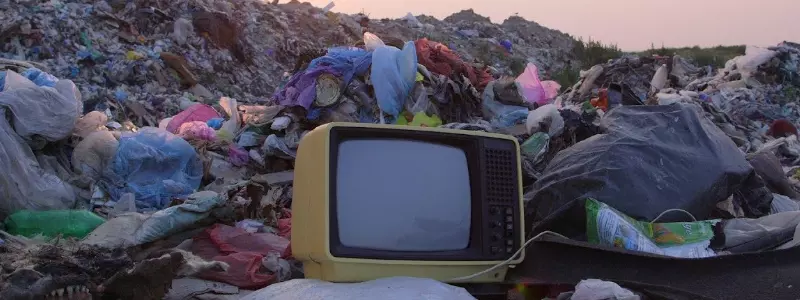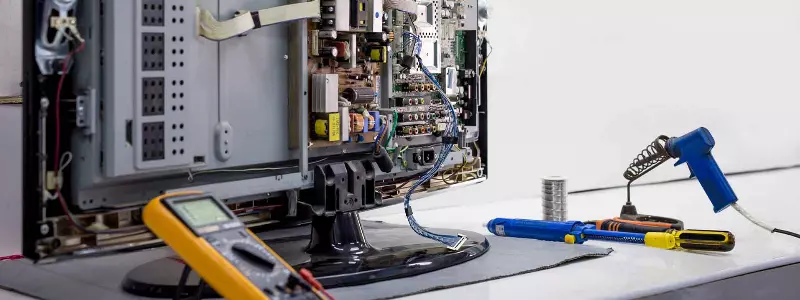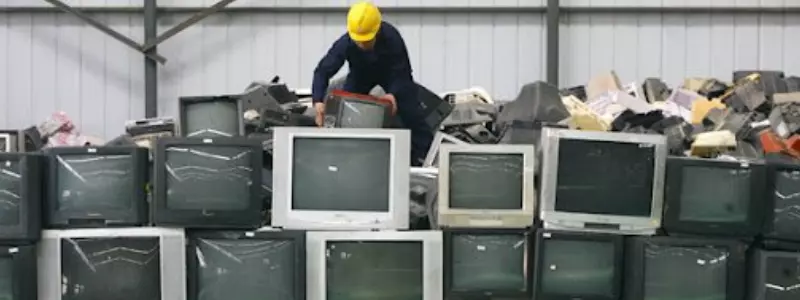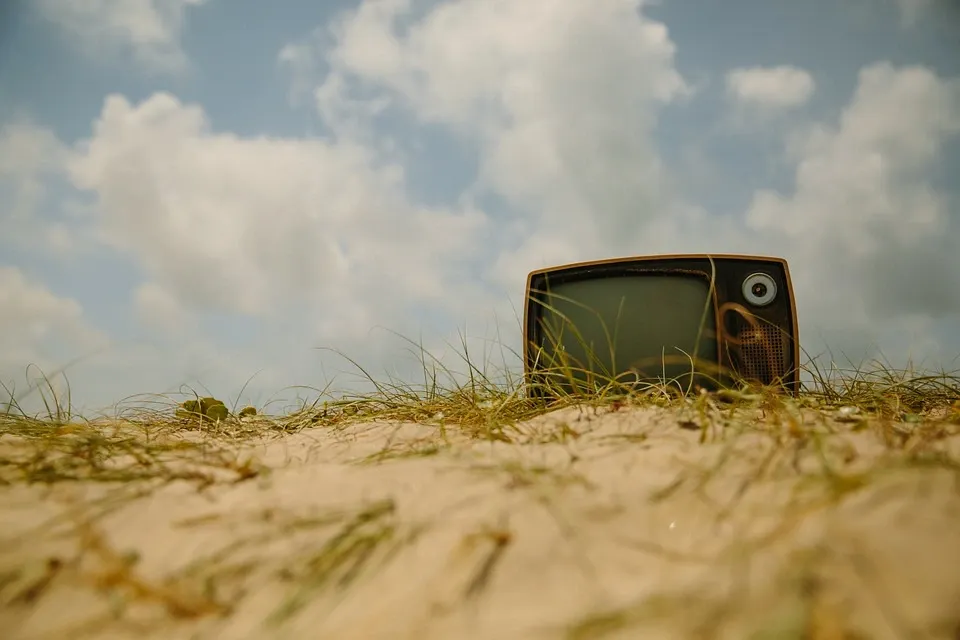It was a long, beautiful relationship! Your TV opened up so many new channels of learning and growth for you and has been the silent spectator for much of your life. However, while it may seem like your TV can do no wrong, it's an environmental disaster in a pretty package by the end of its life.
Your TV is chock full of harmful chemicals that need specialized, professional handling. Ironic, though, is the fact that specialized TV-recycling facilities are quite rare-a vicious circle, we know! Both factors together make disposing of and recycling TVs quite cumbersome, expensive and challenging.
Given all this, you may be tempted to abandon your TV in the dead of night in an old lot, but needless to say, you've got to do the responsible thing and dispose of your television the right way. Wondering how? Here's a guide!
Can a TV go in the trash?
A landfill exists for waste, right? So shouldn't it be as simple as taking putting you TV in the trash?
Unfortunately, it isn't. Many states, such as California, Pennsylvania and Hawaii, do not allow TVs to make their way to landfills because of their toxic components. In states where they are allowed, there are many rules and procedures to follow-and quite a bit to shell out by way of fees.
But wasn't it earlier the norm?
Yes, it was, but there's something to be said about learning from mistakes! Old TVs are quite toxic, with large amounts of hazardous materials, primarily in the cathode ray tube (CRT). Towards the end of the 20th century, with the onset of a more consumerist lifestyle, buying and trashing TVs didn't warrant a second glance, but the environmental impact of this definitely did.
This led to the government regulating and standardizing TV disposal.

Is It Possible to Repair a TV?
Yes, it is possible to repair a TV, but whether or not you should depends on the part of the TV that's been damaged. Screen damage is a major repair, costing you as much as $210 to replace-almost as, if not more expensive than a new TV. Faulty wires may cost a little less.
Some TVs come with a great warranty. If the warranty hasn't expired, take your TV to the original retailer for repair. A few of the big names that sell electronics also offer reasonably-priced repair services.
It could be a simple, inexpensive job or a complicated, expensive one. Therefore, fixing your TV depends on how much you love your TV and more importantly, your budget!

Can You Reuse a TV?
Reusing your TV may be a little bit of a challenge, unless you're a very cool person who managed to turn the TV into a coffee table or a DIY light panel!
Instead, you're better off selling or donating your TV. There are many sites like eBay and Craigslist where you can sell your TV. You can also try yard sales, garage sales, swap meets and thrift stores. Sometimes, the manufacturers themselves accept used TVs. Best Buy also runs an efficient program that accepts old TVs.
Recycling TVs
What type of TV you have can dictate how easy or difficult it is to recycle it. CRT or really old box TVs are the hardest. The other types include plasma, LCD/LED and rear and front projection TVs.
There are many places where you can recycle all these types or at least the majority of their parts. These include:
- Local electronics retailers like Best Buy
- E-waste collection centers and drives/campaigns
- Local hazardous waste collection materials
- Electronic dealers who offer recycling programs

The Bottom Line
Unless your TV really needs it, trashing it should be the last resort. The environmental impacts of not just disposing of but also manufacturing a TV are quite high. So, while it may seem stylish and cool to boast of having two LCD flat screens at home, the price that Mother Nature is paying for this is too high, unnecessary and quite frankly, not worth it!
Choosing to recycle your TV can make a huge difference in a lot of cases-you're saving the environment from objects that don't decompose for decades, you're preventing the poisoning of local flora and fauna that may accidentally ingest parts of the TV and also preventing this poison from entering the food chain or essential groundwater supplies.
Even if you do decide to trash your TV, ensure that you do it responsibly. Get in touch with your local public works department or hazardous waste collection centers for advice on how best to trash your TV, even if it means more effort and responsibility than traditional curbside dumping. Mother Nature will thank you for it.










